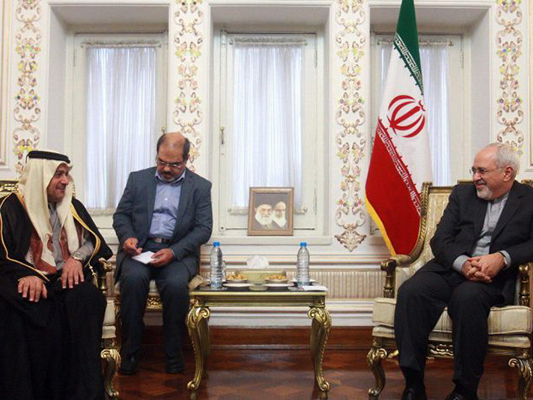Political analyst Sa’dollah Zare’i has, in an article published in the Persian-language Jame Jam daily, weighed in on Qatar’s recent decision to expand the level of its ties with Iran. The following is the full text of the analytical piece written by Zare’i, who is an expert on West Asia issues as well as a university lecturer.
Doha’s decision to return its ambassador to Tehran is, in fact, an admission of the mistake it made last year under pressure from Saudi Arabia. During that time, Qatar itself suffered due to Riyadh’s logic, or rather lack of logic. Of course, the blow dealt to Qatar was much more serious than that suffered by Iran because Saudi Arabia’s call for Arab states to sever relations with Iran was futile and only a few Arab countries accepted to do so. This came as unlike Saudi Arabia, the United Arab Emirates and Bahrain, Qatar did not close its embassy in Tehran last year and only settled for downgrading the level of its political relations with Iran form ambassador to charge d’affaires. With this move, Doha showed its discontent with the statement of the [Persian] Gulf Cooperation Council (GCC). Maybe what happened to this tiny nation a year later [the tension in Qatar’s ties with Saudi Arabia] was the result of its non-compliance with the GCC’s statement.
The question here is what impact the return of Doha’s ambassador to Iran will have on boosting relations with the country.
The reality is that Iran-Qatar relations, so far, have been to the benefit of Qatar because these relations have been largely limited to the political domain, which Doha has used as a bargaining chip in dealing with some governments. So, Qatar’s returning its ambassador to Tehran is in line with Doha’s interests and, at the moment, is not that much to the benefit of Iran. If we look at the very low level of Tehran-Doha ties, we will find out that Iran is among the countries which have the lowest levels of trade with Qatar. This comes as Iran, geographically speaking, is one of the closest countries to Qatar, and naturally, Qatar can have access to Iran’s agriculture market at a much lower cost. Like other Arab countries to the south of the Persian Gulf, Qatar prefers to purchase lower-quality agricultural produce from other countries and ignore high-quality Iranian products.
The return of Qatar’s ambassador to Tehran can provide the answer to another key question: Will severance or downgrading the level of ties with Iran last? The return of the Qatari ambassador suggests the answer to that question is “no.” The important point here is that Iran is a great country which is influential in most cases and issues from India to Morocco; hence, the severance or lowering the level of political relations with Iran will show its negative consequences in the short run and the country which has done so will regret it.
There is another important point in Iran’s foreign relations. In our political ties with foreign governments, we do not pay that much attention to whether or not our relations are beneficial to us. In other words, our relations with a country remain limited to the “political layer” and this is a strategic mistake. For instance, our diplomatic relations with Doha, which are as old as the short lifetime of Qatar, have had almost no economic benefits for Iran. This is while Qatar’s imports cross the $22 billion mark annually. Naturally, Tehran-Doha economic relations should account for at least $5 billion of that figure. So, in my estimation, if our relations with Qatar do not expand from political to economic and cultural areas as well, the continuation of the Qatari embassy’s work in Tehran and that of Iran’s embassy in Doha will only serve the interests of Qatar.
